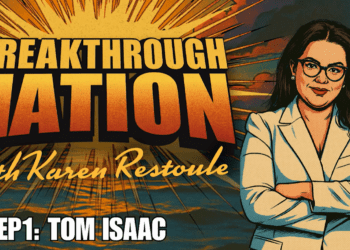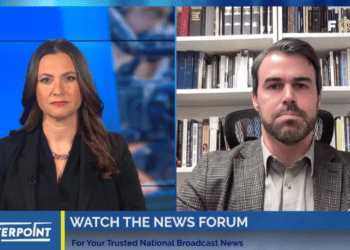In the Globe and Mail, MLI managing director Brian Lee Crowley writes about a new agreement between the government of Canada and the Assembly of First Nations on education. He writes that “important as this agreement may turn out to be for aboriginal education, far more important is what it signals for relations between Ottawa and Canada’s indigenous peoples.” Success on the education file for AFN National Chief Shawn Atleo will be a major boost to his leadership, and for those Aboriginal peoples who are willing to use their new-found legal power to benefit from resource development.
Brian Lee Crowley, February 7, 2014
Barring an unexpected speed bump, Friday will see the announcement of a major agreement between the government of Canada and the Assembly of First Nations (AFN) on K-12 education. The parties regard this agreement as so momentous that Prime Minister Stephen Harper and National Chief of the AFN, Shawn Atleo, will travel to an Alberta reserve to unveil the agreement together.
As I write this, details are few on the exact content of the agreement, although it is believe to ensure First Nations control over education, in exchange for a commitment to adhere to clear standards and outcome measures. But as important as this agreement may turn out to be for aboriginal education, far more important is what it signals for relations between Ottawa and Canada’s indigenous peoples. The health of that relationship is increasingly tied to the economic success of the country.
As a result of an astonishingly successful decades-long campaign of legal, constitutional and political activism, aboriginal peoples in Canada have acquired a wide array of powers over developments that touch their interests, including constitutionalization of existing aboriginal and treaty rights, and the famous “duty to consult and accommodate” that the Supreme Court says applies wherever aboriginal interests are affected by new developments. The Northern Gateway pipeline is perhaps the most obvious example of that new-found power:
Aboriginal people, though, now find themselves at a crossroads, struggling with their own success. On the one hand, there is a group that has become deeply wedded to the strategy of the activism that has produced such remarkable results. No matter how great their victories, there are always new judicial and political battles that can be fought and potentially won, new dimensions of their authority to be tested, new benefits to be sought.
On the other hand, another group increasingly focuses on the fact that the legal power that aboriginal people now enjoy cannot be eaten. It houses and clothes no one. Those benefits only come from using aboriginal power to strike deals, welcome investment, and generally create the opportunities that come from saying “yes” to responsible development.
These different approaches increasingly manifest themselves as a fundamental conflict within the aboriginal world. On one side are those who, on balance, favour saying “no” to projects on the grounds that a better deal can always be struck later, when their negotiating power may be even greater. On the other side are those leaning toward saying “yes” to thoughtful development, because aboriginal people pay a huge opportunity cost in waiting for the next court victory.
Saying yes to development, though, requires a considerable act of courage by aboriginal leaders – when so often in the past, promises made to them by governments and business have proven to be chimerical, honoured more in the breach than in the observance.
Mr. Atleo is widely considered to be the national leader of those favouring the new approach, who want to take the leap of faith and use indigenous power to start making good sensible deals, unlocking a lot of the value of the natural resource economy for aboriginal and non-aboriginal people alike.
Mr. Atleo’s authority has been weakened, however, by the often confrontational atmosphere that has prevailed in relations with Ottawa. While incremental progress has been made on several files behind the scenes, the public narrative has been that Mr. Atleo’s more collaborative and constructive style has not been matched by Mr. Harper’s Conservatives. This has strengthened the hand of those calling for a more activist and confrontational approach.
On perhaps no other file has the tension been worse than aboriginal control of education. In the Kelowna Accord negotiated under Paul Martin, the aboriginal community felt it had made big progress in this area, only to see those gains largely disavowed by the Conservative government. The failure to strike a new education deal was a hard blow to Mr. Atleo’s leadership. The corollary has been a weakening of the pro-opportunity current.
That’s why today’s announcement could herald something much more significant than merely a deal over education. If the deal is widely embraced by aboriginal communities, it will go a long way toward restoring Mr. Atleo’s moral authority, and the credibility of those favouring turning rights into real opportunities.
Brian Lee Crowley (twitter.com/brianleecrowley) is the managing director of the Macdonald-Laurier Institute, an independent non-partisan public policy think tank in Ottawa: www.macdonaldlaurier.ca.




